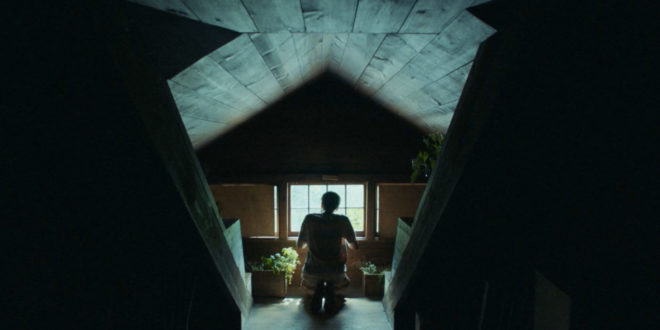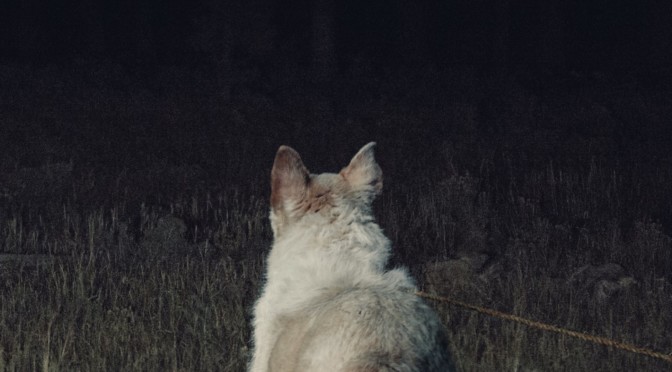In a boarded-up cabin somewhere in the U.S., a family lives in isolation. Paul (Joel Edgerton; The Gift), his wife Sarah (Carmen Ejogo; Selma), and their teenage son Travis (Kelvin Harrison Jr.) lead strictly regimented lives. After a needed, but traumatic act is performed, Travis begins to have nightmares about what their living situation requires. Their routine is interrupted when a man named Will (Christopher Abbott) breaks into their house, claiming to be searching for supplies for his family.
While Travis may be conflicted about their actions, Paul has no such quandaries. Edgerton plays the character with a harsh, but necessitated practicality. Every rule they adopt and action they take is designed to protect the family. He doesn’t view things as right or wrong, he sees them as safe or unsafe. When Will enters the picture, it complicates his perspective. He sees himself in Will, another man just trying to take care of his wife and son, and takes some measured risks to help him. It’s the uneasy trust between the two families in the face of the outside threats that is thematic center of the film.
The cinematography, particularly within the cabin, is incredible. Director Trey Edward Shults (Krisha) moves his camera through the house like a cat burglar, smoothly creeping into each room. It maintains its distance however, adding a sense of voyeurism to the images. The sight of Travis quietly walking around the house is always unsettling. His movement is lit only by his lantern whose light reflects off the wood paneled walls like a flashlight held under one’s face during a fireside ghost story. There is tension with every creaking of his steps and the film is at its best when the seclusion and supposed safety of the cabin is translated into fear of the unknown beyond its one entry point, an ominous red locked door.

There’s a disconnect between what many will expect and what the Shults is interested in delivering. The title, while fantastic for the right type of horror movie, is misleading. It implies that the film is a monster movie, which it clearly isn’t. This is a film that examines the effect of extreme pragmatism created in the wake of a society destroying event. It’s not about creatures in the dark, it’s about the extent to which people lose their humanity when acting solely in their own interest. It’s the conflict between altruism and self-preservation and the risks that either choice creates. The title and marketing hint that there is or could be something beyond the human dangers, but there isn’t – or at least it doesn’t manifest during the course of the movie.
That isn’t a spoiler, it’s a preface. The film does itself a disservice by playing into the tropes of a monster movie. This decision creates an expectation in the audience for something supernatural which will cause many to be disappointed and overlook the other stellar components of the film. It Comes at Night is a deliberate thriller suffused with atmospheric tension that deserves to be appreciated for what it is and not maligned for what it occasionally pretends to be.

4/5 stars.
